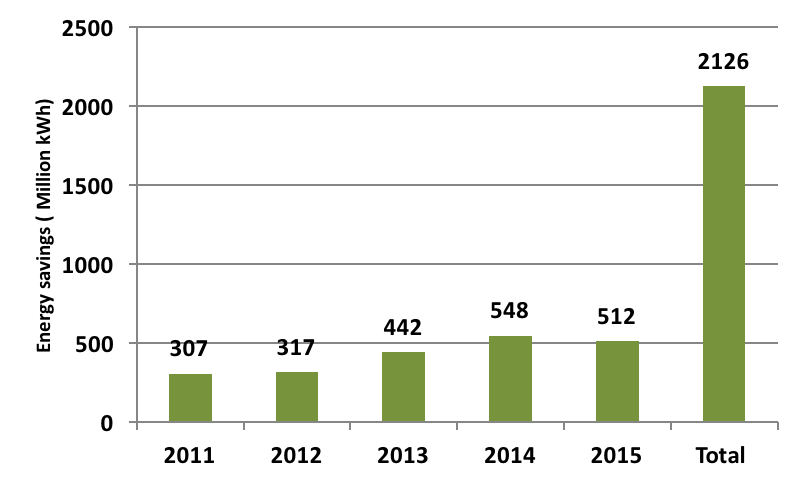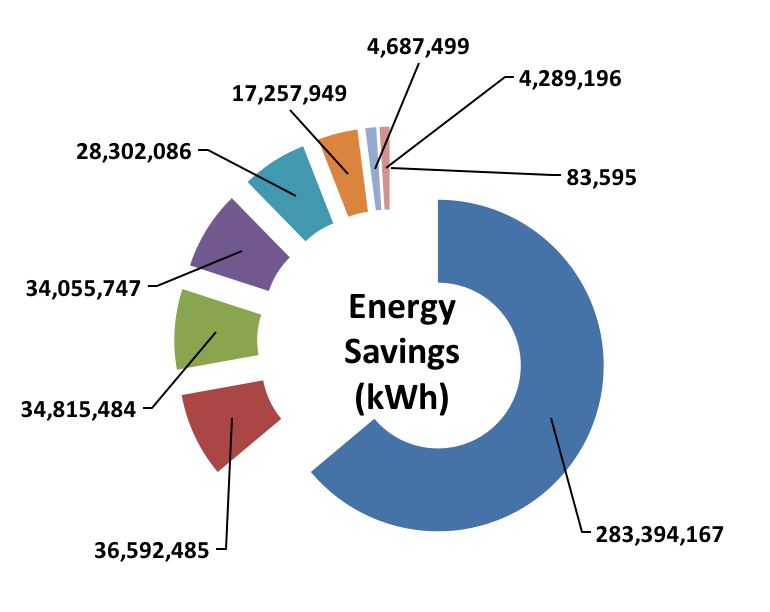Brand CasesFoxconn's Energy-Saving and Carbon-Reduction Practices
Publication Date:2017-09-08
View:8190
Foxconn, the
world’s largest electronics manufacturer, set up a special energy-reduction technology
arm in order to implement energy savings targets and reduce energy consumption,
establishing a management platform of “save energy, reduce emissions, go green,
recycle.” The division covers 38 factories in the group and millions of employees,
thus promoting energy conservation and emissions reduction throughout the whole
group through energy performance contracting, photovoltaic power stations,
energy management and energy-saving products.
During the 12th five-year plan period, Foxconn Group planned to save
energy by 26%, achieving actually energy savings of 26.12%. In total, the Group
saved 2.126 billion kWh of electricity, with an annual breakdown of energy
savings as follows:

During the 13th
five-year plan period, Foxconn plans to save energy by 22% and to save
electricity by 1.73 billion kWh. In 2016, Foxconn reduced energy consumption by
5.58%, compared to an annual target of 5%. Nine subsidiary companies saved
energy as follows:

Apart from saving
energy and reducing emissions at its suppliers, Foxconn first launched pilot
projects to screen its suppliers’ carbon emissions in early 2008. Foxconn asked
its suppliers with carbon emissions greater than 5000 tons of CO2e per year to
set emissions reduction targets, provide emissions reduction proposals and
carry out these plans. Moreover, the purchasing department together and the technical
department of Foxconn consulted with suppliers on emissions reduction
technology, carried out on-site energy-saving analyses, and proposed specific
technologies and solutions for energy conservation. In 2016, Foxconn began to request
suppliers to establish energy management systems based on the requirements in
ISO50001, seeking greater room for emissions reduction and green supply chain
development.
Meanwhile, Foxconn
promotes suppliers to report and publish pollutant release and transfer (PRTR)
data on IPE’s website. In 2017, 80 suppliers are expected to disclose their data.
(The above content was provided to IPE by the brand, who is responsible for the accuracy of the data.)